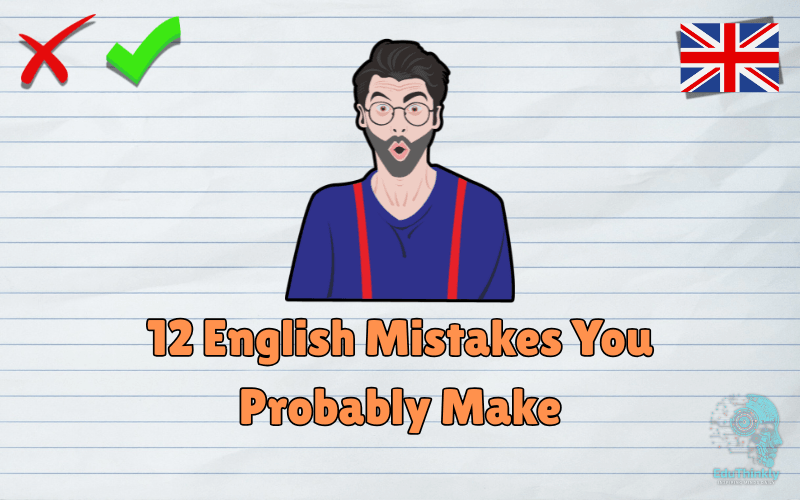12 Common English Mistakes You Didn't Know Even Natives Make
english
11 Jul 2025, 15:47

Keep reading below:
You probably think native English speakers always get everything right… right?
Well—not really. Even fluent speakers mess things up daily, and some of these mistakes might surprise you!
Let’s fix them, one by one.
1. “Less” vs. “Fewer”
Wrong: There were less people at the event than last year. ❌
Correct: There were fewer people at the event than last year. ✅
Trick: Use fewer for countable things (people, apples), and less for uncountable things (water, money).
2. “I” vs. “Me” Confusion
Wrong: She gave the tickets to John and I. ❌
Correct: She gave the tickets to John and me. ✅
Trick: Remove “John” and see if it still sounds right—“She gave the tickets to I” is clearly wrong!
3. Using “Literally” Incorrectly
Wrong: I was literally dying of laughter. ❌
Correct: I was dying of laughter. ✅
Trick: Only use “literally” when something actually happened. If you're exaggerating, skip it.
4. “Could of” Instead of “Could have”
Wrong: I could of gone to the party. ❌
Correct: I could have gone to the party. ✅
Trick: “Could’ve” sounds like “could of,” but it’s short for “could have.”
5. “Your” vs. “You’re”
Wrong: Your amazing. ❌
Correct: You’re amazing. ✅
Trick: “You’re” = “You are.” If you can’t replace it with “you are,” it’s probably wrong.
6. “Then” vs. “Than”
Wrong: She’s taller then me. ❌
Correct: She’s taller than me. ✅
Trick: Use “then” for time, and “than” for comparisons.
7. “Affect” vs. “Effect”
Wrong: The weather effected my mood. ❌
Correct: The weather affected my mood. ✅
Trick: “Affect” is usually a verb (to influence), while “effect” is usually a noun (the result).
8. Double Negatives
Wrong: I don’t know nothing about it. ❌
Correct: I don’t know anything about it. ✅
Trick: Two negatives cancel each other out. Use just one to keep the meaning clear.
9. Misusing “Irregardless”
Wrong: Irregardless of what he said… ❌
Correct: Regardless of what he said… ✅
Trick: “Irregardless” is not standard English—stick with “regardless.”
10. Pronouncing Silent Letters
Wrong: Saying the “k” in knight, the “b” in doubt, or the “w” in wrong. ❌
Correct: These letters are silent. ✅
Trick: Listen to native pronunciation and learn which letters are not pronounced.
11. Using “Literally” When You Mean “Figuratively” (Again)
Wrong: That movie literally blew my mind. ❌
Correct: That movie figuratively blew my mind. ✅
Trick: If your brain is still intact, say "figuratively." Save “literally” for real-life situations!
12. Using “Alot” Instead of “A lot”
Wrong: I have alot of work to do. ❌
Correct: I have a lot of work to do. ✅
Trick: “Alot” is not a word. Always write “a lot” as two separate words.
Final Tips to Sound More Natural:
-Use contractions: say I’m instead of I am in casual speech.
-Practice with native content: movies, podcasts, and YouTube videos.
-Don’t fear mistakes—even natives make them!